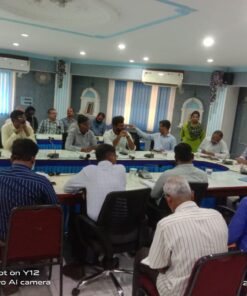Russian Medical Approvals & Certifications
Navigating the Russian medical approvals and certifications process can be complex, as it involves multiple stages and regulatory bodies. Here’s an overview of the key steps and organizations involved:
### Regulatory Bodies:
1. **Ministry of Health of the Russian Federation (Minzdrav)**: The primary governmental body responsible for healthcare policies, regulations, and approvals in Russia.
2. **Federal Service for Surveillance in Healthcare (Roszdravnadzor)**: This agency oversees the quality and safety of medical products, including medications, medical devices, and equipment.
### Key Approvals and Certifications:
1. **Registration Certificate (RC)**:
– Required for pharmaceuticals, medical devices, and certain types of equipment.
– The RC confirms that the product meets safety, efficacy, and quality standards.
– The registration process involves submitting extensive documentation, including preclinical and clinical trial data.
2. **Clinical Trial Approval**:
– Before a new drug or medical device can be registered in Russia, it often needs to undergo clinical trials.
– The approval for clinical trials is granted by the Ministry of Health and/or Roszdravnadzor.
3. **GOST-R Certification**:
– Mandatory for many types of medical equipment and devices.
– Ensures compliance with Russian safety and quality standards.
– The certification process involves testing and inspection by accredited bodies.
4. **CE Marking**:
– While not mandatory in Russia, having a CE mark can facilitate the registration process.
– Indicates compliance with European Union standards for medical devices.
### Steps to Obtain Approvals/Certifications:
1. **Preparation of Documentation**:
– Compile all necessary documents, including technical specifications, clinical trial data, and quality management system documentation.
2. **Submission to Regulatory Authorities**:
– Submit the application and required documents to the relevant regulatory bodies (Minzdrav, Roszdravnadzor).
3. **Review and Evaluation**:
– The regulatory authorities will review the submitted documents and may request additional information or clarifications.
4. **Inspections and Testing**:
– For certain products, on-site inspections and testing may be required to verify compliance with regulations.
5. **Approval and Certification**:
– Once all requirements are met and the product is deemed compliant, the registration certificate or certification will be issued.
6. **Post-Market Surveillance**:
– After approval or certification, ongoing compliance with regulations and standards is monitored through post-market surveillance activities.
### Important Considerations:
– **Local Representation**: Having a local representative or agent in Russia can facilitate communication with regulatory authorities and expedite the approval process.
– **Language and Documentation**: All documentation submitted for approvals should be translated into Russian by accredited translators.
– **Changes and Renewals**: Any changes to the product or its manufacturing process require approval, and certifications often need to be renewed periodically.
Understanding and navigating the Russian regulatory landscape requires careful planning, thorough preparation, and often specialized expertise. Working with experienced regulatory consultants or legal advisors familiar with Russian healthcare regulations can be invaluable in ensuring compliance and successful approvals.





Reviews
There are no reviews yet.